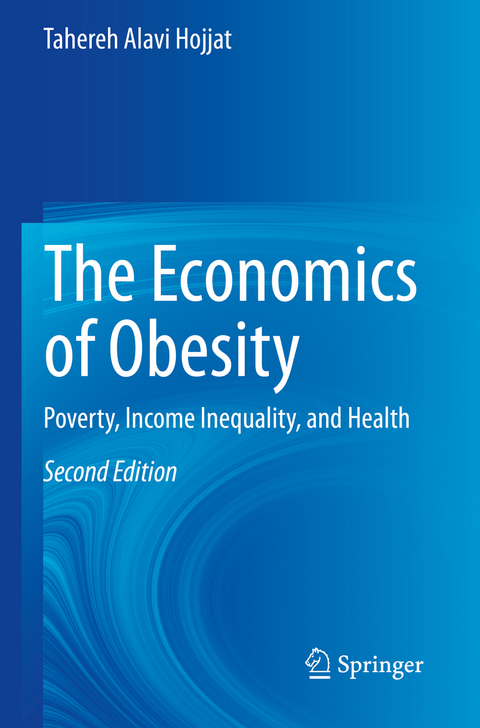
The Economics of Obesity
Springer International Publishing (Verlag)
978-3-030-78489-8 (ISBN)
The social distribution of obesity has changed over time. Obesity rates in the United States continue to worsen in parallel with income inequality. Socioeconomic groups with low personal capital, levels of education, and income have higher obesity rates. In fact, the rate of obesity has increased the fastest among low-income Americans. The disproportionate burden of obesity on the poor poses an economic challenge and an ethical imperative. The link between obesity, inactivity, and poverty may be too costly to ignore because obesity-associated chronic disease already accounts for 70% of US healthcare costs. Although economic and technological changes in the environment drove the obesity epidemic, the evidence for effective economic policies to prevent obesity remains limited.
The new edition brings together a multitude of topics on obesity previously not discussed with a particular emphasis on the influence of poverty and income inequality on obesity including:
- Economic Analysis: Behavioral Patterns, Diet Choice, and the Role of Government
- Income and Wealth Inequality and Obesity
- Social Mobility and Health
- Food Policies, Government Interventions, and Reducing Poverty
Tahereh Alavi Hojjat, PhD is professor and Chair of Economics at DeSales University in Center Valley, Pennsylvania. Dr. Hojjat received her bachelor’s degree from Tehran University, Iran; master’s degree from the American University, Washington, D.C.; and PhD from Lehigh University in Bethlehem, Pennsylvania. She is past recipient of the Teaching Excellence Award by the Eastern Council of Business School and Programs (ECBSP). She received grants from the Center for Advancing Partnership in Education (CAPE) for Global Collaborative Faculty Projects and Lehigh Valley Association of Independent Colleges (LVAIC) for College Admission Mentoring Program (CAMP). Dr. Hojjat has authored several book chapters and articles in peer-reviewed journals of business and social sciences. She has served as an advisory board member of Houghton-Mifflin Publishing and McGraw Hill companies and currently serves as an editorial advisor for several academic journals including Annual Editions-Global Issues, and Journal of Asian Finance, Economics and Business (JAFEB). Dr. Hojjat authored Mini-Cases in Finance, an accompaniment to the textbook entitled Financial Markets and Institutions, Mishkin & Eakins, 7th edition (Pearson Prentice Hall, 2012). She co-authored the book entitled, Islamic Economy and Social Mobility: Cultural and Religious Considerations (IGI-Global, 2016). This book analyzes the social, cultural, religious, and political implications of the Islamic economy at the global level. Her most recent book was published by Springer in 2017: the first edition of The Economics of Obesity: Poverty, Income Inequality and Health. Dr. Hojjat is ex-officio of the Board of Directors of the Pennsylvania Economic Association and a member of the Chapter on Energy Conservation of Lehigh Valley and the United States Association for Energy Economics (USAEE).
Chapter 1:Introduction: The Magnitude of the Obesity Problem.- Chapter 2: Different Perspectives on Causes of Obesity.- Chapter 3: Consequences of Obesity.- Chapter 4: Economic Analysis: Behavioral Patterns, Diet Choice, and the Role of Government.- Chapter 5: Socioeconomic Factors: Poverty and Obesity.- Chapter 6: Income and Wealth Inequality and Obesity.- Chapter 7: Data and Methodology: Empirical Investigation of the Relationship Among Obesity, Income Inequality, and Poverty.- Chapter 8:Obesity and Socioeconomic Status: Case Study of Peruvian Women.- Chapter 9: Social Mobility and Health.- Chapter 10: Food Policies, Government Interventions, and Reducing Poverty.- Chapter 11: Concluding Comments.
| Erscheinungsdatum | 23.08.2022 |
|---|---|
| Zusatzinfo | XXVI, 162 p. 5 illus., 4 illus. in color. |
| Verlagsort | Cham |
| Sprache | englisch |
| Maße | 155 x 235 mm |
| Gewicht | 328 g |
| Themenwelt | Medizin / Pharmazie ► Gesundheitswesen |
| Medizin / Pharmazie ► Medizinische Fachgebiete | |
| Studium ► Querschnittsbereiche ► Prävention / Gesundheitsförderung | |
| Sozialwissenschaften ► Soziologie ► Makrosoziologie | |
| Wirtschaft | |
| Schlagworte | Body weight • Consumer Behavior • Eating Habits • Economic Environment • food and diet • Food Marketing • Food Policy • Health disparities • Health Economics • health equity • Inequality gap • Medical Costs • Obesity • Poverty • Public Health • public policies • Quality of nutrition • Socioeconomic Status |
| ISBN-10 | 3-030-78489-4 / 3030784894 |
| ISBN-13 | 978-3-030-78489-8 / 9783030784898 |
| Zustand | Neuware |
| Informationen gemäß Produktsicherheitsverordnung (GPSR) | |
| Haben Sie eine Frage zum Produkt? |
aus dem Bereich


